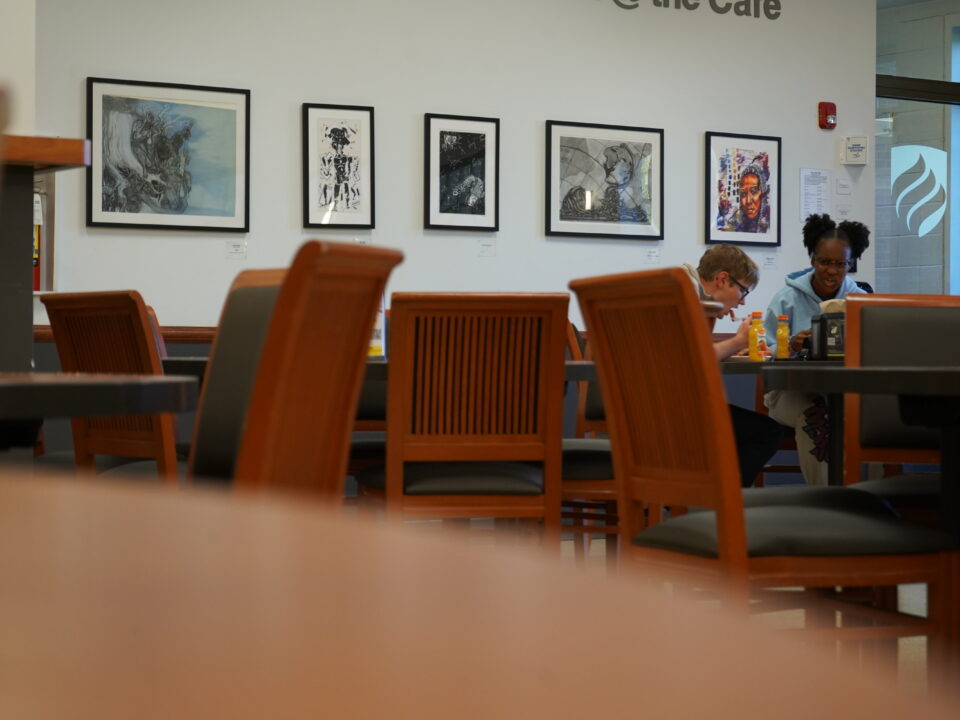EDITORIAL: Everyday should be Earth Day

Earth Day comes around once a year urging people, organizations, and businesses to promote sustainability in various facets.
At Elmhurst University, student organizations such as Greenjays and S.E.E.D.S. excel at promoting green initiatives on campus and educational panels on the environment, especially leading up to Earth Day. Most notably in 2021, the Greenjays proposed an initiative to the Board of Trustees to divest from fossil fuels by 2030.
In 2019, the Frick Center cafeteria shifted from single-use plastic utensils and plates to silverware and reusable plates after a push from the then SGA senators for student affairs and community outreach.
However, due to COVID-19, the school implemented single-use dishes and to-go containers.
Aside from student-led initiatives, what could EU do to promote sustainable action on campus? A lot more than they do now.
EU places significant emphasis on their arboretum status, the approval of the environmental studies major, their rooftop garden, recycling bins around campus, and their divided trash cans in the Frick Center cafe as green initiatives.
Providing more opportunities to learn about the Earth, climate change, and active preservation efforts would benefit the community and create a more educated campus regarding environmental issues. Doing so would also be in line with EU’s core academic values and liberal arts education.
There is not much transparency or urgency beyond the surface level. Little is being done to inform the campus community on how to move forward with recycling and composting practices available.

Graphic by — Rachel Fratt and Gianna Montesano
EU can look to their arboretum neighbor, the Morton Arboretum, as an example of where to begin with educating students and the Elmhurst community about preservation, the history of the trees on campus, and how to contribute to protecting the green life on campus.
Priding itself on community, the arboretum status is the perfect opportunity for EU to invest in bringing the surrounding community onto campus and implementing educational programs for children, composting classes, gardening classes, and more for both Elmhurst residents and students.
Expanding learning opportunities within the EU curriculum is another initiative the school can take toward addressing environmentalism and the Earth on campus. In the general education requirements for undergraduate students, adding on an environmental science area of knowledge requirement centered around climate change, preservation, and policy surrounding legislation in the 21st century is essential.
Climate change is proving to be detrimental to the Earth with rises in temperature, rising sea levels, and a rise in deforestation, providing a class on this subject matter will aid in rounding out the students’ education while at EU.
With the increased rate of climate change and the impact it will have, informing students is crucial, especially as EU plans to divest from fossil fuel investments. More transparency surrounding the composting and recycling practices would encourage more sustainability practices from students.
Currently, recycling is handled at an off-site plant that separates the intermingled waste thrown in, which is great because they are doing the work for the campus. But if there could be a clearer distinction between what can be recycled, it cuts out the middleman, saving money, time, and transportation to the site if done on campus.
Earth Day should be celebrated more than one day per year on campus, and it should be better celebrated by the departments on campus whose work indirectly and directly affects the Earth.
The Earth has been serving humanity for millions of years and as a campus claiming to be green, there should be a continuous strive to do better. Facilities, administration, and dining services need to promote green initiatives more transparently.


